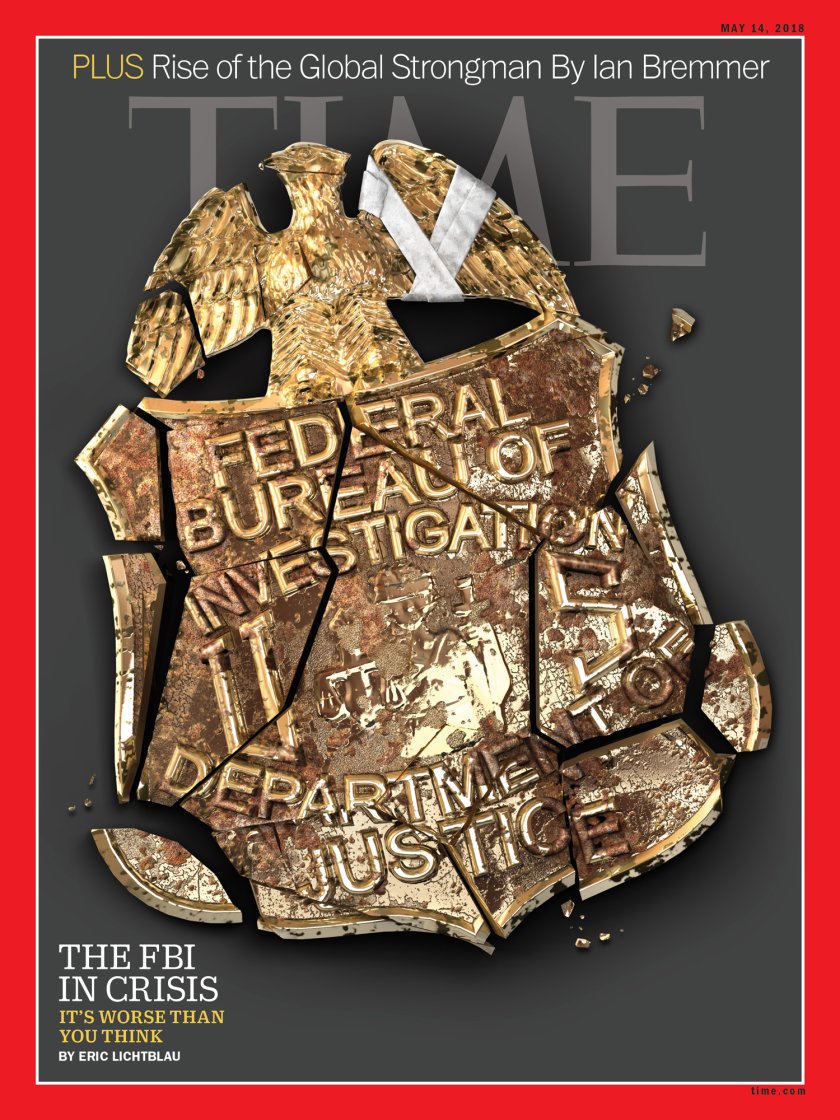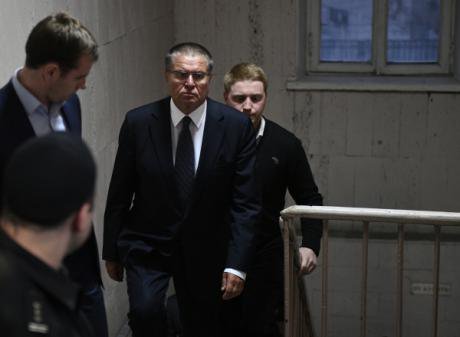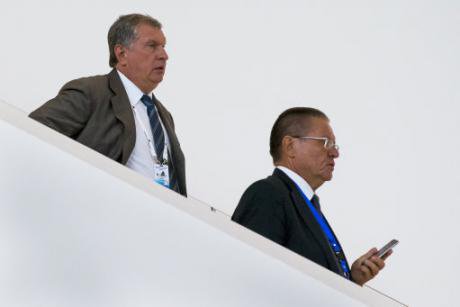5:55 AM 5/8/2019
- Get link
- X
- Other Apps
The FBI became infected with the slow but persistent virus of the German Military Intelligence, the Abwehr; and it was turned into the deceptive and invisible weapon which destroys America from within.trumpinvestigations.blogspot.com/p/april-26-201…
trumpinvestigations.blogspot.com
trumpinvestigations.blogspot.com
#InvestigateTheInvestigators pic.twitter.com/FKoCpogJUZ

Posted by  MichaelNovakhov on Sunday, May 5th, 2019 8:59am
MichaelNovakhov on Sunday, May 5th, 2019 8:59am
 MichaelNovakhov on Sunday, May 5th, 2019 8:59am
MichaelNovakhov on Sunday, May 5th, 2019 8:59am
Retweeted by  mikenov on Tuesday, May 7th, 2019 5:40pm
mikenov on Tuesday, May 7th, 2019 5:40pm
 mikenov on Tuesday, May 7th, 2019 5:40pm
mikenov on Tuesday, May 7th, 2019 5:40pm1 retweet
Read the whole story
· ·
FBI Director Christopher Wray on "spying": "That's not the term I would use." hill.cm/lPV312Wpic.twitter.com/sCZwPl9c6S
Posted by  thehill on Tuesday, May 7th, 2019 2:27pm
thehill on Tuesday, May 7th, 2019 2:27pm
 thehill on Tuesday, May 7th, 2019 2:27pm
thehill on Tuesday, May 7th, 2019 2:27pm
Retweeted by  mikenov on Tuesday, May 7th, 2019 6:08pm
mikenov on Tuesday, May 7th, 2019 6:08pm
 mikenov on Tuesday, May 7th, 2019 6:08pm
mikenov on Tuesday, May 7th, 2019 6:08pm644 likes, 378 retweets
Sechin and US Elections 2016 - Google Search google.com/search?q=Sechi…
#trump #news #maga #twitter #potus #usa #america #gop #gay #Mueller #Barr #FBI #mayorPete #Congress #Bernie2020 #politics #ImpeachTrump #impeachment #democrats #Russia #resistance #truth #media #facts #love pic.twitter.com/yWG68ZiPjf
#trump #news #maga #twitter #potus #usa #america #gop #gay #Mueller #Barr #FBI #mayorPete #Congress #Bernie2020 #politics #ImpeachTrump #impeachment #democrats #Russia #resistance #truth #media #facts #love pic.twitter.com/yWG68ZiPjf

Posted by  mikenov on Tuesday, May 7th, 2019 6:18pm
mikenov on Tuesday, May 7th, 2019 6:18pm
 mikenov on Tuesday, May 7th, 2019 6:18pm
mikenov on Tuesday, May 7th, 2019 6:18pm
FBI Budget Request for Fiscal Year 2020
fbi.gov/news/testimony…
trumpinvestigations.blogspot.com/p/all-saved-st…
#trump #news #maga #twitter #potus #usa #america #gop #gay #Mueller #Barr #FBI #mayorPete #Congress #Bernie2020 #politics #ImpeachTrump #impeachment #democrats #Russia #resistance #truth pic.twitter.com/AQgwK8BE6q
fbi.gov/news/testimony…
trumpinvestigations.blogspot.com/p/all-saved-st…
#trump #news #maga #twitter #potus #usa #america #gop #gay #Mueller #Barr #FBI #mayorPete #Congress #Bernie2020 #politics #ImpeachTrump #impeachment #democrats #Russia #resistance #truth pic.twitter.com/AQgwK8BE6q

Posted by  mikenov on Wednesday, May 8th, 2019 5:20am
mikenov on Wednesday, May 8th, 2019 5:20am
 mikenov on Wednesday, May 8th, 2019 5:20am
mikenov on Wednesday, May 8th, 2019 5:20am
Read the whole story
· · ·
Mr. Wray of FBI: "In closing, the work being done by the FBI is immeasurable". This is exactly the problem: this work HAS TO BE OBJECTIVELY MEASURED AND EVALUATED.
fbi.gov/news/testimony…
trumpinvestigations.blogspot.com/p/all-saved-st…
#trump #news #potus #usa #america #Mueller #Barr #FBI #FbiReform pic.twitter.com/g542y5ti6U
fbi.gov/news/testimony…
trumpinvestigations.blogspot.com/p/all-saved-st…
#trump #news #potus #usa #america #Mueller #Barr #FBI #FbiReform pic.twitter.com/g542y5ti6U

Posted by  mikenov on Wednesday, May 8th, 2019 5:35am
mikenov on Wednesday, May 8th, 2019 5:35am
 mikenov on Wednesday, May 8th, 2019 5:35am
mikenov on Wednesday, May 8th, 2019 5:35am
Read the whole story
· ·
Today, FBI Director Wray testified before the Senate Appropriations Committee, Subcommittee on Commerce, Justice, Science, and Related Agencies, regarding the FBI's budget request for fiscal year 2020. Statement for the Record:... (Twitter Search /...) michael_novakhov.newsblur.com/story/today-fb…
Posted by  mikenov on Wednesday, May 8th, 2019 5:36am
mikenov on Wednesday, May 8th, 2019 5:36am
 mikenov on Wednesday, May 8th, 2019 5:36am
mikenov on Wednesday, May 8th, 2019 5:36am
Next Page of Stories
Loading...
Page 2
#FBI #News #Review
fbinewsreview.org | #InvestigateTheInvestigators! #SaveAmerica! #ReformFBI
trumpinvestigations.blogspot.com/p/all-saved-st…
fbinewsreview.org | #InvestigateTheInvestigators! #SaveAmerica! #ReformFBI
trumpinvestigations.blogspot.com/p/all-saved-st…
#trump #news #maga #twitter #potus #usa #america #gop #gay #Mueller #Barr #FBI #mayorPete #Congress #Bernie2020 #politics #ImpeachTrump #impeachment pic.twitter.com/bSnHFMiDjA

Posted by  mikenov on Wednesday, May 8th, 2019 5:45am
mikenov on Wednesday, May 8th, 2019 5:45am
 mikenov on Wednesday, May 8th, 2019 5:45am
mikenov on Wednesday, May 8th, 2019 5:45am
"The FBI is working... to establish a common operating picture."
fbi.gov/news/testimony…
M.N.: So far this "operating picture" looks more like a big dark blurb.
trumpinvestigations.blogspot.com/p/all-saved-st…
fbi.gov/news/testimony…
M.N.: So far this "operating picture" looks more like a big dark blurb.
trumpinvestigations.blogspot.com/p/all-saved-st…
#trump #news #maga #twitter #potus #usa #america #gop #gay #Mueller #Barr #FBI #mayorPete pic.twitter.com/E6rUBgDFlH

Posted by  mikenov on Wednesday, May 8th, 2019 6:02am
mikenov on Wednesday, May 8th, 2019 6:02am
 mikenov on Wednesday, May 8th, 2019 6:02am
mikenov on Wednesday, May 8th, 2019 6:02am
Read the whole story
· ·
My humble #opinion: #FBI is not able to handle #Counterintelligence, for whatever reasons; the #proof is in the #pudding. Transfer this area directly under #ODNI, it might make more sense.
trumpinvestigations.blogspot.com/p/all-saved-st…
trumpinvestigations.blogspot.com/p/all-saved-st…
#trump #news #maga #potus #usa #america #gop #Mueller #Barr #FBI pic.twitter.com/7eeLHREaKz

Posted by  mikenov on Wednesday, May 8th, 2019 6:10am
mikenov on Wednesday, May 8th, 2019 6:10am
 mikenov on Wednesday, May 8th, 2019 6:10am
mikenov on Wednesday, May 8th, 2019 6:10am
Read the whole story
· · ·
M.N.: Modern Counterintelligence Officers have to be very well trained and educated: generally, culturally, psychologically, etc., etc., and they have to be well paid too. #FBI, with its accumulated garbage, is not capable to provide this exceptional training.
#trump #news #usa pic.twitter.com/Pz1Fc02OPU
#trump #news #usa pic.twitter.com/Pz1Fc02OPU

Posted by  mikenov on Wednesday, May 8th, 2019 6:20am
mikenov on Wednesday, May 8th, 2019 6:20am
 mikenov on Wednesday, May 8th, 2019 6:20am
mikenov on Wednesday, May 8th, 2019 6:20am
Read the whole story
· ·
Wray of FBI - News Review
google.com/search?q=Wray+…
#trump #news #maga #twitter #potus #usa #america #gop #gay #Mueller #Barr #FBI #mayorPete #Congress #Bernie2020 #politics #ImpeachTrump #impeachment #democrats #Russia #resistance #truth #Wray #FBIReform #AbolishFBI #Investigate! pic.twitter.com/OUBoviXH2I
google.com/search?q=Wray+…
#trump #news #maga #twitter #potus #usa #america #gop #gay #Mueller #Barr #FBI #mayorPete #Congress #Bernie2020 #politics #ImpeachTrump #impeachment #democrats #Russia #resistance #truth #Wray #FBIReform #AbolishFBI #Investigate! pic.twitter.com/OUBoviXH2I

Posted by  mikenov on Wednesday, May 8th, 2019 6:44am
mikenov on Wednesday, May 8th, 2019 6:44am
 mikenov on Wednesday, May 8th, 2019 6:44am
mikenov on Wednesday, May 8th, 2019 6:44am
Sen. Elizabeth Warren: "We took an oath not to try to protect Donald Trump. We took an oath to protect and serve the Constitution of the United States of America. And the way we do that is we begin impeachment proceedings -- now -- against this president." pic.twitter.com/GOnVgtL9ZD
Posted by  thehill on Wednesday, May 8th, 2019 6:15am
thehill on Wednesday, May 8th, 2019 6:15am
 thehill on Wednesday, May 8th, 2019 6:15am
thehill on Wednesday, May 8th, 2019 6:15am
Retweeted by  mikenov on Wednesday, May 8th, 2019 6:47am
mikenov on Wednesday, May 8th, 2019 6:47am
 mikenov on Wednesday, May 8th, 2019 6:47am
mikenov on Wednesday, May 8th, 2019 6:47am352 likes, 111 retweets
Read the whole story
· · ·
Next Page of Stories
Loading...
Page 3
#trump #news #maga #twitter #potus #usa #america #gop #gay #Mueller #Barr #FBI #mayorPete #Congress #Bernie2020 #politics #ImpeachTrump #impeachment #democrats #Russia #resistance #truth #media pic.twitter.com/8KTT9acnL3

Posted by  mikenov on Wednesday, May 8th, 2019 6:51am
mikenov on Wednesday, May 8th, 2019 6:51am
 mikenov on Wednesday, May 8th, 2019 6:51am
mikenov on Wednesday, May 8th, 2019 6:51am
Read the whole story
· ·
#FBI is not able to counter #CyberThreats because #FBICheap: they cannot attract the #CyberTalent. You get what you pay for. In these circumstances #money should not be a #problem, especially in #America. The #Return is #100 fold.
trumpandtrumpism.com
trumpinvestigations.org pic.twitter.com/kZsAWveYnp
trumpandtrumpism.com
trumpinvestigations.org pic.twitter.com/kZsAWveYnp

Posted by  mikenov on Wednesday, May 8th, 2019 6:58am
mikenov on Wednesday, May 8th, 2019 6:58am
 mikenov on Wednesday, May 8th, 2019 6:58am
mikenov on Wednesday, May 8th, 2019 6:58am
"Criminal organizations—domestic and international—and individual criminal activity represent a significant threat to our security and safety in communities across the nation."
fbi.gov/news/testimony…
fbi.gov/news/testimony…
#trump #news #maga #twitter #potus #usa #america #gop #gay #Mueller #Barr #FBI pic.twitter.com/Cm86HCIafJ

Posted by  mikenov on Wednesday, May 8th, 2019 7:17am
mikenov on Wednesday, May 8th, 2019 7:17am
 mikenov on Wednesday, May 8th, 2019 7:17am
mikenov on Wednesday, May 8th, 2019 7:17am
"But organized crime has changed dramatically. Today, international criminal enterprises run multi-national, multi-billion-dollar schemes from start to finish."
fbi.gov/news/testimony…
This is the creeping process of #LEGITIMIZING #Mafia, laundering its image and social status. pic.twitter.com/eObIOZhUaE
fbi.gov/news/testimony…
This is the creeping process of #LEGITIMIZING #Mafia, laundering its image and social status. pic.twitter.com/eObIOZhUaE

Posted by  mikenov on Wednesday, May 8th, 2019 7:22am
mikenov on Wednesday, May 8th, 2019 7:22am
 mikenov on Wednesday, May 8th, 2019 7:22am
mikenov on Wednesday, May 8th, 2019 7:22am
Read the whole story
· ·
#Crime-#Terror-#SpecialOperations-#Counterintelligence #Nexus is not addressed adequately in this report, and this trend appears to accelerate.
trumpandtrumpism.com
trumpinvestigations.org
trumpinvestigations.blogspot.com/p/all-saved-st…
#trump #news #twitter #potus #usa #america #Mueller #Barr #FBI pic.twitter.com/8W1rbA6pYa
trumpandtrumpism.com
trumpinvestigations.org
trumpinvestigations.blogspot.com/p/all-saved-st…
#trump #news #twitter #potus #usa #america #Mueller #Barr #FBI pic.twitter.com/8W1rbA6pYa

Posted by  mikenov on Wednesday, May 8th, 2019 7:27am
mikenov on Wednesday, May 8th, 2019 7:27am
 mikenov on Wednesday, May 8th, 2019 7:27am
mikenov on Wednesday, May 8th, 2019 7:27am
Read the whole story
· ·
"request includes $18.2 million to strategically target TOC networks across the globe"
fbi.gov/news/testimony…
fbi.gov/news/testimony…
Is this sufficient? Acumen, skills, resolve, smarts, shrewdness, utter dedication might matter more than money. Significance of this issue has to be
emphasized. Tough! pic.twitter.com/wKJS6Q74fc
emphasized. Tough! pic.twitter.com/wKJS6Q74fc

Posted by  mikenov on Wednesday, May 8th, 2019 7:35am
mikenov on Wednesday, May 8th, 2019 7:35am
 mikenov on Wednesday, May 8th, 2019 7:35am
mikenov on Wednesday, May 8th, 2019 7:35am
Next Page of Stories
Loading...
Page 4
"the way we collect, analyze, and share information...
integration of data analysts (DA) in field offices nationwide"
fbi.gov/news/testimony…
integration of data analysts (DA) in field offices nationwide"
fbi.gov/news/testimony…
#DataAnalysis is not a substitute for good, deep, obsessive thinking and the traditional, high quality "human analysis". We are smarter. pic.twitter.com/ZKG5X09S9v

Posted by  mikenov on Wednesday, May 8th, 2019 7:43am
mikenov on Wednesday, May 8th, 2019 7:43am
 mikenov on Wednesday, May 8th, 2019 7:43am
mikenov on Wednesday, May 8th, 2019 7:43am
Read the whole story
· ·
#trump #news #maga #twitter #potus #usa #america #gop #gay #Mueller #Barr #FBI #mayorPete #Congress #Bernie2020 #politics #ImpeachTrump #impeachment pic.twitter.com/2Ah9OevEOm

Posted by  mikenov on Wednesday, May 8th, 2019 7:46am
mikenov on Wednesday, May 8th, 2019 7:46am
 mikenov on Wednesday, May 8th, 2019 7:46am
mikenov on Wednesday, May 8th, 2019 7:46am
Mr. #Wray makes very good impression just like all #FBILeaders do; it is a part of their job. The tasks are immense, almost formidable. The #PsychologicalResistance to change and #InstitutionalCulture is the #problem, the #COMPREHENSIVE #REFORM is the solution.
#ReformFBI! #News pic.twitter.com/WWFNrUMAx3
#ReformFBI! #News pic.twitter.com/WWFNrUMAx3

Posted by  mikenov on Wednesday, May 8th, 2019 8:09am
mikenov on Wednesday, May 8th, 2019 8:09am
 mikenov on Wednesday, May 8th, 2019 8:09am
mikenov on Wednesday, May 8th, 2019 8:09am
Read the whole story
· ·
"We must seek out new technologies and solutions for the problems..."
fbi.gov/news/testimony…
Human mind, talents and unquestionable dedication are the assets and the solutions, more than the technology, which is just their product.
#InvestigateTheInvestigators! #ReformFBI! #FBI pic.twitter.com/ms6OdphipH
fbi.gov/news/testimony…
Human mind, talents and unquestionable dedication are the assets and the solutions, more than the technology, which is just their product.
#InvestigateTheInvestigators! #ReformFBI! #FBI pic.twitter.com/ms6OdphipH

Posted by  mikenov on Wednesday, May 8th, 2019 8:15am
mikenov on Wednesday, May 8th, 2019 8:15am
 mikenov on Wednesday, May 8th, 2019 8:15am
mikenov on Wednesday, May 8th, 2019 8:15am
Read the whole story
· ·
FBI Director Wray distances himself from Barr's use of 'spying' on ...
CNN-16 hours ago
Washington (CNN) FBI Director Christopher Wray told a Senate panel Tuesday that the bureau is "working to help" Attorney General William ...
FBI Director Defends Bureau Against Spying Accusations: 'That's Not ...
The New York Times-14 hours ago
The New York Times-14 hours ago
FBI Director Wray: I Am Working With Attorney General Barr To "Get To ...
International-RealClearPolitics-14 hours ago
International-RealClearPolitics-14 hours ago
FBI's Wray: Spying is 'not the term I would use' to describe Trump ...
International-Politico-16 hours ago
International-Politico-16 hours ago
WATCH LIVE: FBI Director Christopher Wray testifies before Senate ...
PBS NewsHour-May 6, 2019
FBI director Christopher Wray will face questions Tuesday from senators on Capitol Hill. Wray is scheduled to testify before the Senate ...
FBI says it's working with Silicon Valley to stop election meddling
CNN-14 hours ago
New York (CNN Business) The FBI's relationship with Silicon Valley in ... "changed dramatically," FBIDirector Christopher Wray told senators ...
Read the whole story
· ·
Today, FBI Director Wray testified before the Senate Appropriations Committee, Subcommittee on Commerce, Justice, Science, and Related Agencies, regarding the FBI's budget request for fiscal year 2020. Statement for the Record: http://ow.ly/LTJY50u27j8
Next Page of Stories
Loading...
Page 5
Statement for the Record
Good morning Chairman Moran, Ranking Member Shaheen, and members of the subcommittee.
Thank you for inviting me to appear before you today. On behalf of the men and women of the Federal Bureau of Investigation (FBI), I want to thank this committee for its substantial support in the fiscal year (FY) 2019 appropriation. The resources provided will allow the FBI to combat some of the most egregious national security and criminal threats; continue to partner with state, local, tribal, and other federal agencies in a task force environment; and endeavor to keep pace with technological advancements employed by our adversaries.
The funding provided is also imperative in allowing the FBI to retain its most precious assets—its personnel. As the committee is aware, FBI personnel are the life-force of the organization—they work tirelessly to combat some of the most complex and serious national security threats and crime problems challenging the nation’s intelligence and law enforcement communities.
Today, I appear before you on behalf of the men and women who tackle these threats and challenges every day. I am extremely proud of their service and commitment to the FBI’s mission and to ensuring the safety and security of communities throughout our nation. On their behalf, I would like to express my appreciation for the support you have given them in the past, ask for your continued support in the future, and pledge to be the best possible stewards of the resources you provide.
I would like to begin by providing a brief overview of the FBI’s FY 2020 budget request, and then follow with a short discussion of key threats and challenges that we face, both as a nation and as an organization.
FY 2020 Budget Request Overview
The FY 2020 budget request proposes a total of $9.31 billion in direct budget authority to carry out the FBI’s national security, criminal law enforcement, and criminal justice services missions. The request includes a total of $9.26 billion for salaries and expenses, which will support 35,558 positions (13,201 special agents, 3,115 intelligence analysts, and 19,242 professional staff), and $51.9 million for construction.
As a result of this budget being formulated before the Consolidated Appropriations Act, 2019, was passed, it was built utilizing the prior year enacted level as a starting point. The request does, however, include six program enhancements totaling $144.9 million. These enhancements are proposed to meet critical requirements and close gaps in operational capabilities, including: $70.5 million to enhance cyber investigative capabilities; $18.3 million to mitigate threats from foreign intelligence services; $16.6 million to support the National Vetting Center, $18.2 million to target and disrupt transnational organized crime financial and Darknet networks; $4.2 million to increase the capacity to perform National Instant Criminal Background Check System (NICS) services; and $17.2 million to enhance the FBI’s ability to render safe a weapon of mass destruction.
The request also includes two rescissions from funding appropriated in prior fiscal years—$60 million from the FBI’s salaries and expenses account and $159 million from the FBI’s construction account.
When compared against the FY 2019 enacted level, the FY 2020 request level represents a total decrease of $267.8 million, including an increase of $65.3 million in the salaries and expenses account and a reduction of $333.1 million in the FBI’s construction account.
Key Threats and Challenges
This committee has provided critical resources for the FBI to become what it is today—a threat-focused, intelligence-driven organization. Our nation continues to face a multitude of serious and evolving threats ranging from homegrown violent extremists to hostile foreign intelligence services and operatives; from sophisticated cyber-based attacks to Internet-facilitated sexual exploitation of children; from violent gangs and criminal organizations to public corruption and corporate fraud. Keeping pace with these threats is a significant challenge for the FBI. As an organization, we must be able to stay current with constantly evolving technologies. Our adversaries—terrorists, foreign intelligence services, and criminals—take advantage of modern technology, including the Internet and social media, to facilitate illegal activities, recruit followers, encourage terrorist attacks and other illicit actions, and to disperse information on building improvised explosive devices and other means to attack the U.S. The breadth of these threats and challenges are as complex as any time in our history. And the consequences of not responding to and countering threats and challenges have never been greater.
The support of this committee in helping the FBI do its part in facing and thwarting these threats and challenges is greatly appreciated. That support is allowing us to establish strong capabilities and capacities for assessing threats, sharing intelligence, leveraging key technologies, and—in some respects, most importantly—hiring some of the best to serve as special agents, intelligence analysts, and professional staff. We have built and are continuously enhancing a workforce that possesses the skills and knowledge to deal with the complex threats and challenges we face today—and tomorrow. We are building a leadership cadre that views change and transformation as a positive tool for keeping the FBI focused on the key threats facing our nation.
Today’s FBI is a national security and law enforcement organization that uses, collects, and shares intelligence in everything we do. Each FBI employee understands that to defeat the key threats facing our nation, we must constantly strive to be more efficient and more effective. Just as our adversaries continue to evolve, so, too, must the FBI. We live in a time of acute and persistent terrorist and criminal threats to our national security, our economy, and indeed our communities. These diverse threats underscore the complexity and breadth of the FBI’s mission: to protect the American people and uphold the Constitution of the United States.
National Security
Counterterrorism
Preventing terrorist attacks remains the FBI’s top priority. However, the threat posed by terrorism—both international terrorism (IT) and domestic terrorism (DT)—has evolved significantly since 9/11.
The most persistent threats to the nation and to U.S. interests abroad are homegrown violent extremists (HVEs), domestic terrorists, and foreign terrorist organizations (FTOs). The IT threat to the U.S. has expanded from sophisticated, externally directed FTO plots to include individual attacks carried out by HVEs who are inspired by designated terrorist organizations. We remain concerned that groups such as the Islamic State of Iraq and ash-Sham (ISIS) and al Qaeda have the intent to carry out large-scale attacks in the U.S.
The FBI assesses HVEs are the greatest terrorism threat to the homeland. These individuals are global jihad-inspired individuals who are in the U.S., have been radicalized primarily in the U.S., and are not receiving individualized direction from FTOs. We, along with our law enforcement partners, face significant challenges in identifying and disrupting HVEs. This is due, in part, to their lack of a direct connection with an FTO, an ability to rapidly mobilize, and the use of encrypted communications.
In recent years, prolific use of social media by FTOs has greatly enhanced their ability to disseminate messages. We have also been confronting a surge in terrorist propaganda and training available via the Internet and social media. Due to online recruitment and indoctrination, FTOs are no longer dependent on finding ways to get terrorist operatives into the United States to recruit and carry out acts of terrorism. Terrorists in ungoverned spaces—both physical and cyber—readily disseminate propaganda and training materials to attract easily influenced individuals around the world to their cause. They motivate these individuals to act at home or encourage them to travel. This is a significant transformation from the terrorist threat our nation faced a decade ago.
Despite significant losses of territory, ISIS remains relentless and ruthless in its campaign of violence against the West and has aggressively promoted its hateful message, attracting like- minded extremists. The message is not tailored solely to those who overtly express signs of radicalization. It is seen by many who click through the Internet every day, receive social media notifications, and participate in social networks. Ultimately, many of the individuals drawn to ISIS seek a sense of belonging. Echoing other terrorist groups, ISIS has advocated for lone offender attacks in Western countries. Recent ISIS videos and propaganda have specifically advocated for attacks against soldiers, law enforcement, and intelligence community personnel.
Many foreign terrorist organizations use various digital communication platforms to reach individuals they believe may be susceptible and sympathetic to extremist messages. However, no group has been as successful at drawing people into its perverse ideology as ISIS, who has proven dangerously competent at employing such tools. ISIS uses high-quality, traditional media platforms, as well as widespread social media campaigns to propagate its extremist ideology. With the broad distribution of social media, terrorists can spot, assess, recruit, and radicalize vulnerable persons of all ages in the U.S. either to travel or to conduct an attack on the homeland. Through the Internet, terrorists overseas now have direct access to our local communities to target and recruit our citizens and spread the message of radicalization faster than was imagined just a few years ago.
The threats posed by foreign fighters, including those recruited from the U.S., are very dynamic. We will continue working to identify individuals who seek to join the ranks of foreign fighters traveling in support of ISIS, those foreign fighters who may attempt to return to the United States, and HVEs who may aspire to attack the United States from within.
ISIS is not the only terrorist group of concern. Al Qaeda maintains its desire for large-scale, spectacular attacks. However, continued counterterrorism pressure has degraded the group, and in the near term al Qaeda is more likely to focus on supporting small-scale, readily achievable attacks against U.S. and allied interests in the Afghanistan/Pakistan region. Simultaneously, over the last year, propaganda from al Qaeda leaders seeks to inspire individuals to conduct their own attacks in the U.S. and the West.
In addition to FTOs, domestic extremist movements collectively pose a steady threat of violence and economic harm to the United States. Trends within individual movements may shift, but the underlying drivers for domestic extremism—such as perceptions of government or law enforcement overreach, socio-political conditions, and reactions to legislative actions—remain constant. The FBI is most concerned about lone offender attacks, primarily shootings, as they have served as the dominant mode for lethal domestic extremist violence. We anticipate law enforcement, racial minorities, and the U.S. government will continue to be significant targets for many domestic extremist movements.
As the threat to harm the United States and U.S. interests evolves, we must adapt and confront these challenges, relying heavily on the strength of our federal, state, local, and international partnerships. The FBI uses all lawful investigative techniques and methods to combat these terrorist threats to the United States. Along with our domestic and foreign partners, we are collecting and analyzing intelligence concerning the ongoing threat posed by foreign terrorist organizations and homegrown violent extremists. We continue to encourage information sharing, which is evidenced through our partnerships with many federal, state, local, and tribal agencies assigned to Joint Terrorism Task Forces around the country. Be assured, the FBI continues to strive to work and share information more efficiently, and to pursue a variety of lawful methods to help stay ahead of these threats. The FBI’s FY 2020 request includes 48 positions (including two special agents) and $16.6 million to support technical and analytical capabilities related to counterterrorism vetting efforts.
Counterintelligence
The nation faces a continuing threat, both traditional and asymmetric, from hostile foreign intelligence agencies. Traditional espionage, often characterized by career foreign intelligence officers acting as diplomats or ordinary citizens, and asymmetric espionage, typically carried out by students, researchers, or businesspeople operating front companies, is prevalent. Foreign intelligence services not only seek our nation’s state and military secrets, but they also target commercial trade secrets, research and development, and intellectual property, as well as insider information from the federal government, U.S. corporations, and American universities. Foreign intelligence services continue to employ more creative and more sophisticated methods to steal innovative technology, critical research and development data, and intellectual property, in an effort to erode America’s economic leading edge. These illicit activities pose a significant threat to national security and continue to be a priority and focus of the FBI.
Foreign influence operations—which include covert actions by foreign governments to influence U.S. political sentiment or public discourse—are not a new problem. But the interconnectedness of the modern world, combined with the anonymity of the Internet, have changed the nature of the threat and how the FBI and its partners must address it. The goal of these foreign influence operations directed against the United States is to spread disinformation, sow discord, and, ultimately, undermine confidence in our democratic institutions and values.
Foreign influence operations have taken many forms and used many tactics over the years. Most widely reported these days are attempts by adversaries—hoping to reach a wide swath of Americans covertly from outside the United States—to use false personas and fabricated stories on social media platforms to discredit U.S. individuals and institutions. However, other influence operations include targeting U.S. officials and other U.S. persons through traditional intelligence tradecraft; criminal efforts to suppress voting and provide illegal campaign financing; cyber attacks against voting infrastructure, along with computer intrusions targeting elected officials and others; and a whole slew of other kinds of influence, like both overtly and covertly manipulating news stories, spreading disinformation, leveraging economic resources, and escalating divisive issues.
Almost two years ago, I established the Foreign Influence Task Force (FITF) to identify and counteract malign foreign influence operations targeting the United States. The FITF is uniquely positioned to combat this threat. The task force now brings together the FBI’s expertise across the waterfront—counterintelligence, cyber, criminal, and even counterterrorism—to root out and respond to foreign influence operations. Task force personnel work closely with other U.S. government agencies and international partners concerned about foreign influence efforts aimed at their countries, using three key pillars. Currently there are open investigations with a foreign influence nexus spanning FBI field offices across the country. Second, we are focused on information and intelligence-sharing. The FBI is working closely with partners in the intelligence community and in the federal government, as well as with state and local partners, to establish a common operating picture. The FITF is also working with international partners to exchange intelligence and strategies for combating what is a shared threat. The third pillar of our approach is based on strong relationships with the private sector. Technology companies have a front-line responsibility to secure their own networks, products, and platforms. But the FBI is doing its part by providing actionable intelligence to better enable the private sector to address abuse of their platforms by foreign actors. Over the last year, the FBI has met with top social media and technology companies several times, provided them with classified briefings, and shared specific threat indicators and account information, so they can better monitor their own platforms.
But this is not just an election-cycle threat. Our adversaries are continuously trying to undermine our country, whether it is election season or not. As a result, the FBI must remain vigilant.
In addition to the threat posed by foreign influence, the FBI is also concerned about foreign investment by hostile nation states. Over the course of the last seven years, foreign investment in the U.S. has more than doubled. Concurrent with this growth, foreign direct investment (FDI) in the U.S. has increasingly become a national security concern, as hostile nations leverage FDI to buy U.S. assets that will advance their intelligence, military, technology, and economic goals at the expense of U.S. national security. The Committee on Foreign Investment in the U.S. (CFIUS), an executive branch committee chaired by the Department of Treasury, was statutorily created to address potential risks to U.S. national security resulting from foreign acquisitions or mergers with U.S. companies. As part of this process, the FBI provides input and analysis to the National Intelligence Council within eight days of a CFIUS filing and a risk assessment to the Department of Justice within 30 days of a CFIUS filing. As a result of the Foreign Investment Risk Review Modernization Act (FIRRMA), which was enacted last year, the FBI anticipates its workload to increase dramatically.
The FY 2020 request includes six positions (including one special agent) and $18.3 million to address the threats posed by foreign influence and foreign investment in the United States.
Cyber Threats
Virtually every national security threat and crime problem the FBI faces is cyber-based or facilitated. We face sophisticated cyber threats from state-sponsored hackers, hackers for hire, organized cyber syndicates, and terrorists. On a daily basis, cyber-based actors seek our state secrets, our trade secrets, our technology, and our ideas—things of incredible value to all of us and of great importance to the conduct of our government business and our national security. They seek to strike our critical infrastructure and to harm our economy.
As the committee is well aware, the frequency and impact of cyber-attacks on our nation’s private sector and government networks have increased dramatically in the past decade and are expected to continue to grow. We continue to see an increase in the scale and scope of reporting on malicious cyber activity that can be measured by the amount of corporate data stolen or deleted, personally identifiable information compromised, or remediation costs incurred by U.S. victims. Within the FBI, we are focused on the most dangerous malicious cyber activity: high-level intrusions by state-sponsored hackers and global organized crime syndicates, as well as other technically sophisticated attacks. FBI agents, analysts, and computer scientists are using technical capabilities and traditional investigative techniques—such as sources, court- authorized electronic surveillance, physical surveillance, and forensics—to fight the full range of cyber threats. And we continue to actively coordinate with our private and public partners to pierce the veil of anonymity surrounding cyber-based crimes.
Botnets used by cyber criminals have been responsible for billions of dollars in damages over the past several years. The widespread availability of malicious software (malware) that can create botnets allows individuals to leverage the combined bandwidth of thousands, if not millions, of compromised computers, servers, or network-ready devices to conduct attacks. Cyber threat actors have also increasingly conducted ransomware attacks against U.S. systems, encrypting data and rendering systems unusable—thereby victimizing individuals, businesses, and even public health providers.
Cyber threats are not only increasing in size and scope, but are also becoming increasingly difficult to investigate. Cyber criminals often operate through online forums, selling illicit goods and services, including tools that can be used to facilitate cyber attacks. These criminals have also increased the sophistication of their schemes, which are more difficult to detect and more resilient than ever. Cyber threats are also becoming increasingly difficult to investigate. For instance, many cyber actors are based abroad or obfuscate their identities by using foreign infrastructure, making coordination with international law enforcement partners essential.
The FBI is engaged in a myriad of efforts to combat cyber threats, from improving threat identification and information sharing inside and outside of the government to developing and retaining new talent, to examining the way we operate to disrupt and defeat these threats. We take all potential threats to public and private sector systems seriously and will continue to investigate and hold accountable those who pose a threat in cyberspace. The FY 2020 request includes 33 positions (including three special agents) and $70.5 million to enhance cyber information-sharing abilities and increase cyber tools and capacities.
Criminal Threats
We face many criminal threats, from complex white-collar fraud in the financial, health care, and housing sectors to transnational and regional organized criminal enterprises to violent crime and public corruption. Criminal organizations—domestic and international—and individual criminal activity represent a significant threat to our security and safety in communities across the nation. A key tenet of protecting the nation from those who wish to do us harm is the National Instant Criminal Background Check System, or NICS. The goal of NICS is to ensure that guns do not fall into the wrong hands, and also to ensure the timely transfer of firearms to eligible gun buyers. Mandated by the Brady Handgun Violence Prevention Act of 1993 and launched by the FBI on November 30, 1998, NICS is used by Federal Firearms Licensees (FFLs) to instantly determine whether a prospective buyer is eligible to purchase firearms. NICS receives information from tens of thousands of FFLs and checks to ensure that applicants do not have a criminal record or are not otherwise prohibited and therefore ineligible to purchase a firearm. In the first complete month of operation in 1998, a total of 892,840 firearm background checks were processed; in 2018, almost 2.2 million checks were processed per month.
While most checks are completed by electronic searches of the NICS database within minutes, a small number of checks require examiners to review records and resolve missing or incomplete information before an application can be approved or rejected. Ensuring the timely processing of these inquiries is important to ensure law abiding citizens can exercise their right to purchase a firearm and to protect communities from prohibited and therefore ineligible individuals attempting to acquire a firearm. The FBI is currently processing a record number of checks, over 26 million were processed in 2018—an increase of almost 950,000 checks. The FY 2020 request includes 40 positions and $4.2 million to increase the capacity to process NICS checks within the mandated timeframe and to meet new requirements included in the Fix NICS Act.
Violent Crime
Violent crimes and gang activities exact a high toll on individuals and communities. Many of today’s gangs are sophisticated and well organized and use violence to control neighborhoods, and boost their illegal money-making activities, which include robbery, drug and gun trafficking, fraud, extortion, and prostitution rings. These gangs do not limit their illegal activities to single jurisdictions or communities. The FBI is able to work across such lines, which is vital to the fight against violent crime in big cities and small towns across the nation. Every day, FBI special agents work in partnership with federal, state, local, and tribal officers and deputies on joint task forces and individual investigations.
FBI joint task forces—Violent Crime Safe Streets, Violent Gang Safe Streets, and Safe Trails—focus on identifying and targeting major groups operating as criminal enterprises. Much of the FBI criminal intelligence is derived from our state, local, and tribal law enforcement partners, who know their communities inside and out. Joint task forces benefit from FBI surveillance assets, and our sources track these gangs to identify emerging trends. Through these multi-subject and multi-jurisdictional investigations, the FBI concentrates its efforts on high-level groups engaged in patterns of racketeering. This investigative model enables us to target senior gang leadership and to develop enterprise-based prosecutions.
By way of example, the FBI has dedicated tremendous resources to combat the threat of violence posed by MS-13. The atypical nature of this gang has required a multi-pronged approach—we work through our task forces here in the U.S. while simultaneously gathering intelligence and aiding our international law enforcement partners. We do this through the FBI’s Transnational Anti-Gang Task Forces (TAGs). Established in El Salvador in 2007 through the FBI’s National Gang Task Force, Legal Attaché (Legat) San Salvador, and the United States Department of State, each TAG is a fully operational unit responsible for the investigation of MS-13 operating in the northern triangle of Central America and threatening the United States. This program combines the expertise, resources, and jurisdiction of participating agencies involved in investigating and countering transnational criminal gang activity in the United States and Central America. There are now TAGs in El Salvador, Guatemala, and Honduras. Through these combined efforts, the FBI has achieved substantial success in countering the MS-13 threat across the United States and Central America.
Despite these efforts, we still have work to do. There are still jurisdictions that are struggling. The latest Uniform Crime Reporting statistics gathered from Crime in the United States, 2017 show the number of violent crimes in the nation decreased by 0.2 percent compared with the 2016 estimate. The 2018 Preliminary Uniform Crime Report indicates a similar trend.
We are committed to working with our federal, state, local, and tribal partners in a coordinated effort to reduce crime in the United States.
Transnational Organized Crime (TOC) and Opioids
More than a decade ago, organized crime was characterized by hierarchical organizations, or families, that exerted influence over criminal activities in neighborhoods, cities, or States. But organized crime has changed dramatically. Today, international criminal enterprises run multi-national, multi-billion-dollar schemes from start to finish. Modern-day criminal enterprises are flat, fluid networks with global reach. While still engaged in many of the “traditional” organized crime activities of loan-sharking, extortion, and murder, modern criminal enterprises are targeting stock market fraud and manipulation, cyber-facilitated bank fraud and embezzlement, drug trafficking, identity theft, human trafficking, money laundering, alien smuggling, public corruption, weapons trafficking, extortion, kidnapping, and other illegal activities. TOC networks exploit legitimate institutions for critical financial and business services that enable the storage or transfer of illicit proceeds. Preventing and combating transnational organized crime demands a concentrated effort by the FBI and federal, state, local, tribal, and international partners.
While the FBI continues to share intelligence about criminal groups with our partners and combines resources and expertise to gain a full understanding of each group, the threat of transnational crime remains a significant and growing threat to national and international security with implications for public safety, public health, democratic institutions and economic stability across the globe. Because of this, the FBI’s FY 2020 request includes $18.2 million to strategically target TOC networks across the globe and to develop solutions to effectively disrupt and dismantle Darknet financial networks and transnational money laundering groups.
Illicit drug trafficking continues to be a growing threat. Large amounts of high-quality, low cost heroin and illicit fentanyl are contributing to record numbers of overdose deaths and life-threatening addictions nationwide. The accessibility and convenience of the drug trade online contributes to the opioid epidemic in the United States. Transnational criminal organizations (TCOs) are introducing synthetic opioids to the U.S. market, including fentanyl and fentanyl analogs. To address this evolving threat, we are taking a multi-faceted approach and establishing many initiatives and units across our criminal program.
In January 2018, the Office of the Deputy Attorney General directed the FBI and other federal law enforcement partners to develop a strategic plan to disrupt and dismantle the Darknet illicit marketplaces facilitating the distribution of fentanyl and other opioids. As a result, the FBI established the Joint Criminal Opioid Darknet Enforcement (J-CODE) initiative, which brings together agents, analysts, and professional staff with expertise in drugs, gangs, health care fraud, and more, with federal, state, and local law enforcement partners from across the U.S. government. The J-CODE team has developed a comprehensive, multi-pronged criminal enterprise strategy to target the trafficking of fentanyl and other opioids on the Darknet and Clearnet. This strategy focuses on identifying and infiltrating the marketplace administrative team, analyzing financial information, locating and exploiting marketplace infrastructure, targeting vendors and buyers, and enabling field office success in the investigation and prosecution of these marketplaces. As a result, numerous investigations and operations have been initiated and several online vendors who are facilitating the trafficking of opioids via the Internet, to include fentanyl, have been disrupted.
The FBI is also addressing this threat through the Prescription Drug Initiative (PDI). The PDI was established in 2016 in response to the substantial and increasing threat associated with prescription drug diversion, and in particular, the staggering national increase in opioid-related deaths. The objective of the PDI is to identify and target criminal enterprises and other groups engaged in prescription drug schemes; identify and prosecute, where appropriate, organizations with improper corporate policies related to prescription drugs; and identify and prosecute, where appropriate, organizations with improper prescribing and dispensing practices. The PDI prioritizes investigations which target “gatekeeper” positions, to include medical professionals and pharmacies that divert opioids outside the scope of their medical practice and/or distribute these medications with no legitimate medical purpose. Since its inception, the PDI has resulted in the conviction of numerous medical professionals and secured significant federal prison sentences, to include life terms for physicians who cause harm or death to the patients entrusted to their care.
Beyond these two programs, the FBI has dedicated additional resources to address this expansive threat. We have more than doubled the number of Transnational Organized Crime Task Forces, expanded the Organized Crime Drug Enforcement Task Force (OCDETF) airport initiative to focus on insider threats partnering with TCO actors, and created and led the Fentanyl Safety Working Group at FBI Headquarters, which has led to a new program to protect field agents and support employees with personal protective equipment (PPE) and opioid antagonists (i.e. naloxone) from the threat of fentanyl exposure. The FBI participated, along with other federal partners, in the creation of the Heroin Availability Reduction Plan (HARP), takes part in monthly HARP meetings hosted by the Office of National Drug Control Policy (ONDCP), and continues to provide training to our international law enforcement partners on successful identification, seizure, and neutralization of clandestine heroin/fentanyl laboratories.
Crimes Against Children and Human Trafficking
It is unthinkable, but every year, thousands of children become victims of crimes—whether it is through kidnappings, violent attacks, sexual abuse, human trafficking, or online predators. The FBI is uniquely positioned to provide a rapid, proactive, and comprehensive response; identify, locate, and recover child victims; and strengthen relationships between the FBI and federal, state, local, tribal, and international law enforcement partners to identify, prioritize, investigate, and deter individuals and criminal networks from exploiting children.
The FBI has several programs in place to arrest child predators and to recover missing and endangered children. To this end, the FBI funds or participates in a variety of endeavors, including our Innocence Lost National Initiative, Innocent Images National Initiative, Operation Cross Country, Child Abduction Rapid Deployment Teams, Victim Services Division, 80 Child Exploitation Task Forces, 53 International Violent Crimes Against Children Task Force Officers, as well as numerous community outreach programs to educate parents and children about safety measures they can follow.
Currently, there are at least 30 child pornography sites operating openly and notoriously on the Darknet, including the Tor network. Some of these child pornography sites are exclusively dedicated to the sexual abuse of infants and toddlers. The sites often expand rapidly, with one site obtaining 150,000 new members within its first seven weeks of operation. The FBI combats this pernicious crime problem through investigations such as Operation Pacifier, which targeted the administrators and users of a highly-sophisticated, Tor-based global enterprise dedicated to the sexual exploitation of children. This multi-year operation has led to the arrest of over 348 individuals based in the United States, the prosecution of 25 American child pornography producers and 51 American hands-on abusers, the rescue or identification of 55 American children, the arrest of 548 international individuals, and the identification or rescue of 296 children abroad.
Child Abduction Rapid Deployment Teams are ready-response teams stationed across the country to quickly respond to abductions. Investigators bring to this issue the full array of forensic tools such as DNA analysis, trace evidence, impression evidence, and digital forensics. Through improved communications, law enforcement also has the ability to quickly share information with partners throughout the world, and these outreach programs play an integral role in prevention.
In addition to programs to combat child exploitation, the FBI also focuses efforts to stop human trafficking—a modern form of slavery. The majority of human trafficking victims recovered during FBI investigations are United States citizens, but traffickers are opportunists who will exploit any victim with a vulnerability. Victims of human trafficking are subjected to forced labor or sex trafficking, and the FBI is working hard with its partners to combat both forms.
The FBI works collaboratively with law enforcement partners to investigate and arrest human traffickers through Human Trafficking Task Forces nationwide. We take a victim-centered, trauma-informed approach to investigating these cases and strive to ensure the needs of victims are fully addressed at all stages. To accomplish this, the FBI works in conjunction with other law enforcement agencies and victim specialists on the local, State, Tribal, and federal levels, as well as with a variety of vetted non-governmental organizations. Even after the arrest and conviction of human traffickers, the FBI often continues to work with partner agencies and organizations to assist victims in moving beyond their exploitation.
Earlier this year, the FBI announced the results of an 11-day effort by the Violent Crimes Against Children/Human Trafficking Program and the Metro Atlanta Child Exploitation (MATCH) Task Force. The effort, leading up to Super Bowl LIII, was collaborated with over 25 local, state, and federal law enforcement agencies and district attorney’s offices, along with seven non-government organizations. From January 23, 2019 to February 2, 2019, the operation’s goal was to raise awareness about sex trafficking by proactively addressing that threat during the Super Bowl and events leading up to the Super Bowl. This event led to 169 arrests, including 26 traffickers and 34 individuals attempting to engage in sex acts with minors; nine juvenile sex trafficking victims recovered (the youngest was 14 years of age); and nine adult human trafficking victims identified. Trafficking is not just a problem during large-scale events—it is a 365 day-a-year problem in communities all across the country.
The FBI commends the committee’s dedication to these efforts and appreciates the resources provided to combat these horrific acts.
Key Cross-Cutting Capabilities and Capacities
I would like to briefly highlight some key cross-cutting capabilities and capacities that are critical to our efforts in each of the threat and crime problems described.
Operational and Information Technology
As criminal and terrorist threats become more diverse and dangerous, the role of technology becomes increasingly important to our efforts. The FBI is using technology to improve the way we collect, analyze, and share information. We have seen significant improvement in capabilities over the past decade, but keeping pace with technology remains a key concern for the future.
The volume of data collected in the course of investigations continues to rapidly expand. In the case of the 2017 Las Vegas shooting, the FBI recovered one petabyte of data. Insufficient network bandwidth and tools necessitated the need for 260 FBI personnel to work over 10 days to manually review 21,500 hours of video footage. These bandwidth and data challenges are not limited to major cases or large offices. It is not uncommon for FBI investigations to generate more than one terabyte of data per day, an amount that could normally take two days to transit FBI networks at current bandwidth levels. As a result, the FBI has made dedicated efforts to upgrade and transform its information technology platforms to meet the demands of current and future investigations. To keep pace in an era where investigations and analysis will increasingly be conducted at the petabyte scale, the FBI needs to build networks that can move bulk data, modernize investigative data analysis, and reduce reliance on stand-alone, ad-hoc systems.
A key tenet of this transformation is the integration of data analysts (DA) in field offices nationwide. A DA is able to clean, standardize, enrich, and visualize data using computer programming and statistical techniques to provide products to the investigative team to further investigative matters. They are able to create code tailored to intelligence and investigative requirements to triage and prioritize vast amounts of data received by investigative teams, enabling efficient follow-on analysis; convert thousands of location points contained in cellphone call and data records into a usable format for follow-on network and geospatial analysis; and combine dozens of differently formatted files into an easy-to-read, consolidated format, free of duplicate and inconsistent information. In FY 2018, the FBI piloted the DA program by sending analysts to several FBI field offices. The DAs helped those offices address several of their most critical data challenges and were able to solve volume, velocity, and geospatial data issues. In one instance, investigators wanted to determine what businesses a credit card skimming subject visited to place money orders. The DA converted hundreds of pages of call detail records to a machine readable format, plotted location points onto a map to show the subject’s location over time, and calculated the proximity to vendors where fraudulent activity may have occurred. The DA’s mapping product not only provided pattern of life information (leading to the discovery of new investigative leads), but also saved investigators days, if not weeks. The FY 2020 request expands the 2018 pilot program by requesting an additional 25 data analysts to deploy to the most critical field offices. The FBI will continue to monitor and measure the success of this program.
The FBI Laboratory is one of the largest and most comprehensive forensic laboratories in the world. Operating out of a facility in Quantico, Virginia, laboratory personnel travel the world on assignment, using science and technology to protect the nation and support law enforcement, intelligence, military, and forensic science partners. The Lab’s many services include providing expert testimony, mapping crime scenes, and conducting forensic exams of physical and hazardous evidence. Lab personnel possess expertise in many areas of forensics supporting law enforcement and intelligence purposes, including explosives, trace evidence, documents, chemistry, cryptography, DNA, facial reconstruction, fingerprints, firearms, and counterterrorism and forensic research.
The Terrorist Explosives Device Analytical Center (TEDAC) is a key example. Formally established in 2004, TEDAC serves as the single interagency organization that receives, fully analyzes, and exploits all priority terrorist improvised explosive devices (IEDs). TEDAC coordinates the efforts of the entire government, including law enforcement, intelligence, and military entities, to gather and share intelligence about IEDs. These efforts help disarm and disrupt IEDs, link them to their makers, and prevent future attacks. For example, Laboratory Division personnel testified in New York in the successful prosecution of Muhanad Mahmoud Al Farekh after linking him to a vehicle-borne improvised explosive device prepared for an attack on a U.S. military base in Afghanistan. Although originally focused on devices from Iraq and Afghanistan, TEDAC now receives and analyzes devices from all over the world.
Additionally, the Laboratory Division maintains a capability to provide forensic support for significant shooting investigations. The Laboratory Shooting Reconstruction Team provides support to FBI field offices by bringing together expertise from various Laboratory components to provide enhanced technical support to document complex shooting crime scenes. Services are scene- and situation-dependent and may include mapping of the shooting scene in two or three dimensions, scene documentation through photography, including aerial and oblique imagery, 360-degree photography and videography, trajectory reconstruction, and the analysis of gunshot residue and shot patterns. Significant investigations supported by this team include the shootings at the Inland Regional Center in San Bernardino, California; the Pulse Night Club in Orlando, Florida; the Route 91 Harvest Music Festival in Las Vegas, Nevada; and the shooting of 12 police officers during a protest against police shootings in Dallas, Texas.
FBI special agents and intelligence analysts need the best technological tools available to be responsive to the advanced and evolving threats that face our nation. Enterprise information technology must be designed so that it provides information to operational employees rather than forcing employees to conform to the tools available. IT equipment must be reliable and accessible, thus decreasing the time between information collection and dissemination.
Conclusion
In closing, the work being done by the FBI is immeasurable; however, we cannot afford to be complacent. We must seek out new technologies and solutions for the problems that exist today as well as those that are on the horizon. We must build toward the future so that we are prepared to deal with the threats we will face at home and abroad and understand how those threats may be connected.
Being expected to respond to a wide range of complex and ever-changing threats and crime problems is not new to the FBI. Our success in meeting these challenges is, however, directly tied to the resources provided to the FBI. The resources the committee provides each year are critical for the FBI’s ability to address existing and emerging national security and criminal threats.
Chairman Moran, Ranking Member Shaheen, and members of the subcommittee, I would like to close by thanking you for this opportunity to discuss the FBI’s FY 2020 budget request and the key threats and challenges we are facing, both as a nation and as an organization. We are grateful for the leadership that you and this subcommittee have provided to the FBI. Your willingness to invest in and support our workforce and our physical and technical infrastructure allow the men and women of the FBI to make a difference every day in communities large and small throughout our nation and around the world. We thank you for that support.
I look forward to answering any questions you may have.
Read the whole story
· · · · · · · · · · · · · · · · · · · · · · · · · ·
- At least 2 people injured, two suspects in custody after shooting at Colorado STEM school NBCNews.com
- Injuries reported, 'unstable situation, shots fired' at Colorado school, sheriff says Fox News
- 2 believed injured after shots fired at STEM School in Highlands Ranch The Denver Post
- Multiple victims in shooting at STEM School Highlands Ranch The Denver Channel
- 2 injured in Colorado school shooting, police say ABC News
- View full coverage on Google News
U.S. intelligence officials are seeking to determine whether an American businessman identified by Donald Trump as one of his foreign policy advisers has opened up private communications with senior Russian officials — including talks about the possible lifting of economic sanctions if the Republican nominee becomes president, according to multiple sources who have been briefed on the issue.
The activities of Trump adviser Carter Page, who has extensive business interests in Russia, have been discussed with senior members of Congress during recent briefings about suspected efforts by Moscow to influence the presidential election, the sources said. After one of those briefings, Senate minority leader Harry Reid wrote FBI Director James Comey, citing reports of meetings between a Trump adviser (a reference to Page) and “high ranking sanctioned individuals” in Moscow over the summer as evidence of “significant and disturbing ties” between the Trump campaign and the Kremlin that needed to be investigated by the bureau.
Some of those briefed were “taken aback” when they learned about Page’s contacts in Moscow, viewing them as a possible back channel to the Russians that could undercut U.S. foreign policy, said a congressional source familiar with the briefings but who asked for anonymity due to the sensitivity of the subject. The source added that U.S. officials in the briefings indicated that intelligence reports about the adviser’s talks with senior Russian officials close to President Vladimir Putin were being “actively monitored and investigated.”
A senior U.S. law enforcement official did not dispute that characterization when asked for comment by Yahoo News. “It’s on our radar screen,” said the official about Page’s contacts with Russian officials. “It’s being looked at.”
Page is a former Merrill Lynch investment banker in Moscow who now runs a New York consulting firm, Global Energy Capital, located around the corner from Trump Tower, that specializes in oil and gas deals in Russia and other Central Asian countries. He declined repeated requests to comment for this story.
Trump first mentioned Page’s name when asked to identify his “foreign policy team” during an interview with the Washington Post editorial team last March. Describing him then only as a “PhD,” Trump named Page as among five advisers “that we are dealing with.” But his precise role in the campaign remains unclear; Trump spokeswoman Hope Hicks last month called him an “informal foreign adviser”who “does not speak for Mr. Trump or the campaign.” Asked this week by Yahoo News, Trump campaign spokesman Jason Miller said Page “has no role” and added: “We are not aware of any of his activities, past or present.” Miller did not respond when asked why Trump had previously described Page as one of his advisers.
The questions about Page come amid mounting concerns within the U.S. intelligence community about Russian cyberattacks on the Democratic National Committee and state election databases in Arizona and Illinois. In a rare public talk this week, former undersecretary of defense for intelligence Mike Vickers said that the Russian cyberattacks constituted meddling in the U.S. election and were “beyond the pale.” Also, this week, two senior Democrats — Sen. Dianne Feinstein, ranking minority member on the Senate Intelligence Committee, and Rep. Adam Schiff, ranking minority member on the House Intelligence Committee — released a joint statement that went further then what U.S. officials had publicly said about the matter.
“Based on briefings we have received, we have concluded that the Russian intelligence agencies are making a serious and concerted effort to influence the U.S. election,” they said. “At the least, this effort is intended to sow doubt about the security of our election and may well be intended to influence the outcomes of the election.” They added that “orders for the Russian intelligence agencies to conduct such actions could come only from very senior levels of the Russian government.”
Page came to the attention of officials at the U.S. Embassy in Moscow several years ago when he showed up in the Russian capital during several business trips and made provocative public comments critical of U.S. policy and sympathetic to Putin. “He was pretty much a brazen apologist for anything Moscow did,” said one U.S. official who served in Russia at the time.
He hasn’t been shy about expressing those views in the U.S. as well. Last March, shorty after he was named by Trump as one of his advisers, Page told Bloomberg News he had been an adviser to, and investor in, Gazprom, the Russian state-owned gas company. He then blamed Obama administration sanctions — imposed as a response to the Russian annexation of Crimea — for driving down the company’s stock. “So many people who I know and have worked with have been so adversely affected by the sanctions policy,” Page said in the interview. “There’s a lot of excitement in terms of the possibilities for creating a better situation.”
Page showed up again in Moscow in early July, just two weeks before the Republican National Convention formally nominated Trump for president, and once again criticized U.S. policy. Speaking at a commencement address for the New Economic School, an institution funded in part by major Russian oligarchs close to Putin, Page asserted that “Washington and other West capitals” had impeded progress in Russia “through their often hypocritical focus on ideas such as democratization, inequality, corruption and regime change.”
At the time, Page declined to say whether he was meeting with Russian officials during his trip, according to a Reuters report.
But U.S. officials have since received intelligence reports that during that same three-day trip, Page met with Igor Sechin, a longtime Putin associate and former Russian deputy prime minister who is now the executive chairman of Rosneft, Russian’s leading oil company, a well-placed Western intelligence source tells Yahoo News. That meeting, if confirmed, is viewed as especially problematic by U.S. officials because the Treasury Department in August 2014 named Sechin to a list of Russian officials and businessmen sanctioned over Russia’s “illegitimate and unlawful actions in the Ukraine.” (The Treasury announcement described Sechin as “utterly loyal to Vladimir Putin — a key component to his current standing.” At their alleged meeting, Sechin raised the issue of the lifting of sanctions with Page, the Western intelligence source said.
U.S. intelligence agencies have also received reports that Page met with another top Putin aide while in Moscow — Igor Diveykin. A former Russian security official, Diveykin now serves as deputy chief for internal policy and is believed by U.S. officials to have responsibility for intelligence collected by Russian agencies about the U.S. election, the Western intelligence source said.
Read the whole story
· · · ·
By Kevin R. Brock, opinion contributor — 05/07/19 09:30 AM EDT
John Bolton, the national security adviser, and others are saber-rattling, with possibility of conflicts in Iran, Venezuela and more.
» Subscribe to MSNBC: http://on.msnbc.com/SubscribeTomsnbc
» Subscribe to MSNBC: http://on.msnbc.com/SubscribeTomsnbc
MSNBC delivers breaking news and in-depth analysis of the headlines, as well as informed perspectives. Find video clips and segments from The Rachel Maddow Show, Morning Joe, Hardball, All In, Last Word, 11th Hour, and more.
Connect with MSNBC Online
Visit msnbc.com: http://on.msnbc.com/Readmsnbc
Subscribe to MSNBC Newsletter: http://MSNBC.com/NewslettersYouTube
Find MSNBC on Facebook: http://on.msnbc.com/Likemsnbc
Follow MSNBC on Twitter: http://on.msnbc.com/Followmsnbc
Follow MSNBC on Instagram: http://on.msnbc.com/Instamsnbc
Visit msnbc.com: http://on.msnbc.com/Readmsnbc
Subscribe to MSNBC Newsletter: http://MSNBC.com/NewslettersYouTube
Find MSNBC on Facebook: http://on.msnbc.com/Likemsnbc
Follow MSNBC on Twitter: http://on.msnbc.com/Followmsnbc
Follow MSNBC on Instagram: http://on.msnbc.com/Instamsnbc
John Bolton, Others "Saber-Rattling" In White House | All In | MSNBC
President Trump's former attorney Michael Cohen began his three-year prison sentence Monday. It comes as Democrats are pushing for special counsel Robert Mueller to in wake of releasing his report. CBS News' Jeff Pegues joins CBSN with the latest from Washington.
Subscribe to the CBS News Channel HERE: http://youtube.com/cbsnews
Watch CBSN live HERE: http://cbsn.ws/1PlLpZ7
Follow CBS News on Instagram HERE: https://www.instagram.com/cbsnews/
Like CBS News on Facebook HERE: http://facebook.com/cbsnews
Follow CBS News on Twitter HERE: http://twitter.com/cbsnews
Watch CBSN live HERE: http://cbsn.ws/1PlLpZ7
Follow CBS News on Instagram HERE: https://www.instagram.com/cbsnews/
Like CBS News on Facebook HERE: http://facebook.com/cbsnews
Follow CBS News on Twitter HERE: http://twitter.com/cbsnews
Get the latest news and best in original reporting from CBS News delivered to your inbox. Subscribe to newsletters HERE: http://cbsn.ws/1RqHw7T
Get your news on the go! Download CBS News mobile apps HERE: http://cbsn.ws/1Xb1WC8
Get new episodes of shows you love across devices the next day, stream CBSN and local news live, and watch full seasons of CBS fan favorites like Star Trek Discovery anytime, anywhere with CBS All Access. Try it free! http://bit.ly/1OQA29B
---
CBSN is the first digital streaming news network that will allow Internet-connected consumers to watch live, anchored news coverage on their connected TV and other devices. At launch, the network is available 24/7 and makes all of the resources of CBS News available directly on digital platforms with live, anchored coverage 15 hours each weekday. CBSN. Always On.
CBSN is the first digital streaming news network that will allow Internet-connected consumers to watch live, anchored news coverage on their connected TV and other devices. At launch, the network is available 24/7 and makes all of the resources of CBS News available directly on digital platforms with live, anchored coverage 15 hours each weekday. CBSN. Always On.
Read the whole story
· ·
Next Page of Stories
Loading...
Page 6
Washington Post columnist, scholar and expert on authoritarianism Brian Klaas talks to Lawrence O’Donnell about what Trump's weekend Twitter storm says about his authoritarian impulses.
» Subscribe to MSNBC: http://on.msnbc.com/SubscribeTomsnbc
» Subscribe to MSNBC: http://on.msnbc.com/SubscribeTomsnbc
MSNBC delivers breaking news and in-depth analysis of the headlines, as well as informed perspectives. Find video clips and segments from The Rachel Maddow Show, Morning Joe, Hardball, All In, Last Word, 11th Hour, and more.
Connect with MSNBC Online
Visit msnbc.com: http://on.msnbc.com/Readmsnbc
Subscribe to MSNBC Newsletter: http://MSNBC.com/NewslettersYouTube
Find MSNBC on Facebook: http://on.msnbc.com/Likemsnbc
Follow MSNBC on Twitter: http://on.msnbc.com/Followmsnbc
Follow MSNBC on Instagram: http://on.msnbc.com/Instamsnbc
Visit msnbc.com: http://on.msnbc.com/Readmsnbc
Subscribe to MSNBC Newsletter: http://MSNBC.com/NewslettersYouTube
Find MSNBC on Facebook: http://on.msnbc.com/Likemsnbc
Follow MSNBC on Twitter: http://on.msnbc.com/Followmsnbc
Follow MSNBC on Instagram: http://on.msnbc.com/Instamsnbc
President Donald Trump Accused Of Having A Case Of ‘Dictator Envy’ | The Last Word | MSNBC
Within days, Trump talked about the Mueller probe with Putin calling it a 'hoax,' said he was 'with' North Korea's dictator, and much more. Is Trump giving Russia's leader everything he could want in an American president? We discuss with Greg Miller.
» Subscribe to MSNBC: http://on.msnbc.com/SubscribeTomsnbc
» Subscribe to MSNBC: http://on.msnbc.com/SubscribeTomsnbc
MSNBC delivers breaking news and in-depth analysis of the headlines, as well as informed perspectives. Find video clips and segments from The Rachel Maddow Show, Morning Joe, Hardball, All In, Last Word, 11th Hour, and more.
Connect with MSNBC Online
Visit msnbc.com: http://on.msnbc.com/Readmsnbc
Subscribe to MSNBC Newsletter: http://MSNBC.com/NewslettersYouTube
Find MSNBC on Facebook: http://on.msnbc.com/Likemsnbc
Follow MSNBC on Twitter: http://on.msnbc.com/Followmsnbc
Follow MSNBC on Instagram: http://on.msnbc.com/Instamsnbc
Visit msnbc.com: http://on.msnbc.com/Readmsnbc
Subscribe to MSNBC Newsletter: http://MSNBC.com/NewslettersYouTube
Find MSNBC on Facebook: http://on.msnbc.com/Likemsnbc
Follow MSNBC on Twitter: http://on.msnbc.com/Followmsnbc
Follow MSNBC on Instagram: http://on.msnbc.com/Instamsnbc
Is Putin Getting Everything He Could Ever Want From A Trump Presidency? | The 11th Hour | MSNBC
Barr shamelessly corrupted debate on Mueller report Albuquerque Journal
The longer Mueller's findings were misrepresented, the more time Trump had to claim vindication.
- Is Putin getting everything he could ever want from a Trump presidency? MSNBC
- Trump partners with Putin to make Russia great again CNN
- Pompeo can’t explain away Trump’s softness on Putin The Washington Post
- Trump-Putin phone call cause for genuine concern (Editorial) MassLive.com
- AP Fact Check: Trump, Putin on 'no collusion' Champaign/Urbana News-Gazette
- View full coverage on Google News

Alexandra Chalupa asked Ukrainians for dirt on the president.
 The Democratic National Committee asked Ukrainian President Petro Poroshenko for help in its unseemly plot to sabotage Donald Trump’s presidential campaign in 2016, according to media reports.
The Democratic National Committee asked Ukrainian President Petro Poroshenko for help in its unseemly plot to sabotage Donald Trump’s presidential campaign in 2016, according to media reports.
The revelation comes as a backlash continues to build against Deep State Democrats for foisting the now-discredited Trump-Russian electoral collusion conspiracy theory on the American public as a way to explain Democrat Hillary Clinton’s unexpected defeat and to cover up President Obama’s leadership role in a real-life left-wing conspiracy to take down Trump’s campaign, transition team, and new administration.
.
DNC contractor Alexandra Chalupa asked the Ukrainian government for dirt on Trump
The Ukrainian Embassy in Washington, D.C., now acknowledges DNC contractor Alexandra Chalupa asked the Ukrainian government for dirt on Trump and for information about his one-time campaign manager Paul Manafort’s dealings with Russia’s neighboring country, John Solomon reports at The Hill newspaper.
Chalupa spends much of her time spreading lies and trashing President Trump on Twitter. For example, on May 4, she urged the Twenty-Five Amendment be invoked to overthrow Trump. She wrote:
The Putin-controlled occupant of the Oval Office praised Kim Jong-un after he conducted missile tests.He briefed Putin on the Mueller probe & discussed an American witness.Are we going to wait until he gets millions killed before removing him or is this the plan?#25thAmend
In his recent article, Solomon was following up on his earlier reports. He reported in March that Ukraine Prosecutor General Yurii Lutsenko launched an investigation into whether during the 2016 U.S. election cycle his government deliberately leaked financial records about Manafort in a bid to help Clinton’s candidacy.
“An illegal intrusion into the American election campaign”
A Ukrainian court ruled that the leak was deemed, in Lutsenko’s words, to be “an illegal intrusion into the American election campaign.” That court determined that Ukraine’s National Anti-Corruption Bureau, which worked closely with the U.S. Embassy in Kiev, and parliamentarian Serhiy Leshchenko improperly inserted themselves into the U.S. election by releasing the Manafort-related documents.
Before becoming prosecutor general Lutsenko “was a major activist against Russia’s influence in his country during the tenure of Moscow-allied former President Viktor Yanukovych. He became chief prosecutor in 2016 as part of anti-corruption reforms instituted by current President Petro Poroshenko, an ally of the U.S. and Western countries,” Solomon reports.
The office of Valeriy Chaly, Ukraine’s ambassador to the United States, said in a recent statement that Chalupa asked the embassy for information about Manafort’s dealings inside Ukraine and that it deemed her requests to be inappropriate solicitations to interfere in the American elections.
“The Embassy got to know Ms. Chalupa because of her engagement with Ukrainian and other diasporas in Washington D.C., and not in her DNC capacity. We’ve learned about her DNC involvement later,” Chaly said.
“We were surprised to see Alexandra’s interest in Mr. Paul Manafort’s case. It was her own cause. The Embassy representatives unambiguously refused to get involved in any way, as we were convinced that this is a strictly U.S. domestic matter.”
Ukrainian government officials tried to help Hillary Clinton and undermine Trump by publicly questioning his fitness for office
“All ideas floated by Alexandra were related to approaching a Member of Congress with a purpose to initiate hearings on Paul Manafort or letting an investigative journalist ask President Poroshenko a question about Mr. Manafort during his public talk in Washington, D.C.,” Chaly said.
Chaly’s statement confirmed the key points of a January 2017 Politico story about Chalupa’s exploits. That story stated:
Ukrainian government officials tried to help Hillary Clinton and undermine Trump by publicly questioning his fitness for office. They also disseminated documents implicating a top Trump aide in corruption and suggested they were investigating the matter, only to back away after the election. And they helped Clinton’s allies research damaging information on Trump and his advisers, a Politico investigation found.A Ukrainian-American operative who was consulting for the Democratic National Committee met with top officials in the Ukrainian Embassy in Washington in an effort to expose ties between Trump, top campaign aide Paul Manafort and Russia, according to people with direct knowledge of the situation.The Ukrainian efforts had an impact in the race, helping to force Manafort’s resignation and advancing the narrative that Trump’s campaign was deeply connected to Ukraine’s foe to the east, Russia.
And so another chapter in the sordid history of the Democratic Party begins
Nellie Ohr, spouse of disgraced senior U.S. Justice Department official Bruce Ohr, said in congressional testimony that while she was employed by the Clinton-paid research firm Fusion GPS she conducted research into any ties Manafort and Trump had to Russia. While doing so she found that Leshchenko was funneling intelligence to Fusion, which retained former British spy Christopher Steele whose ridiculous dossier the FBI used to initiate a surveillance operation against Trump campaign adviser Carter Page.
Solomon wrote in April that the Obama White House asked Ukrainian law enforcement to meet in January 2016 as Trump began climbing in the polls. After the meeting, the U.S. asked Ukraine for assistance in probing Manafort. In May 2016 the Ukrainians leaked the Manafort papers.
Andrii Telizhenko, a former political officer under Chaly from December 2015 through June 2016, told Solomon he met with Chalupa, whom he knew was “someone working for the DNC and trying to get Clinton elected.”
“She said the DNC wanted to collect evidence that Trump, his organization and Manafort were Russian assets, working to hurt the U.S. and working with [Russian President Vladimir] Putin against the U.S. interests,” he told Solomon. “She indicated if we could find the evidence they would introduce it in Congress in September and try to build a case that Trump should be removed from the ballot, from the election.”
And so another chapter in the sordid history of the Democratic Party begins.

Matthew Vadum --Front Page Mag
-- Bio and Archives |
Comments
Matthew Vadum, Bombthrowers, and matthewvadum.blogspot.com, is an investigative reporter at a watchdog group in Washington, D.C.
His new book Subversion Inc. can be bought at Amazon.com (US), Amazon.ca (Canada)
Visit the Subversion Inc. Facebook page. Follow me on Twitter.
Please adhere to our commenting policy to avoid being banned. As a privately owned website, we reserve the right to remove any comment and ban any user at any time.
Comments that contain spam, advertising, vulgarity, threats of violence and death, racism, anti-Semitism, or personal or abusive attacks on other users may be removed and result in a ban.
--
Follow these instructions on registering
:
Read the whole story
· · · · · · · ·
Antisemitism Is Alive — and Thriving — in Modern-Day Germany Algemeiner

 "israel and germany" - Google News
"israel and germany" - Google News
The German national antisemitism commissioner, Felix Klein, published an article on May 3, titled, “There is a threat of unrestrained Jew-hatred in Germany.
Next Page of Stories
Loading...
Page 7
Слова, связанные с карточными играми
В большинстве карточных игр есть определенный набор слов: «сдавать карты», «козыри», «тянуть карту» и т. д. Давайте обратимся к списку полезных слов и фраз по теме:
- Trumps (козыри) – масть карт, которая выбирается главной на одну игру. Карта-козырь будет бить (beat) карту любой другой масти. Типичные словосочетания:Hearts are trumps. – Черви – козыри.I will trump your card. – Я побью козырем твою карту.
- Dealer – сдающий карты.
- To bluff – блефовать, то есть вести себя так, как будто у вас на руках хорошие карты, хотя на самом деле это совсем не так.

Russia's Minister of Economic Development Alexey Ulyukaev arrives at Moscow's Basmanny Court. (c) Maksim Blinov / RIA Novosti. All rights reserved.Last week, for the first time in Russia’s recent history, a federal minister was arrested. According to the Investigative Committee, Alexey Ulyukaev — at that moment, Russia’s Minister of Economic Development — was detained accepting a bribe of two million dollars at the office of state oil company Rosneft.
From the explanations given by the Investigative Committee, Ulyukaev had tried to extort money from Rosneft in exchange for issuing a positive ministerial evaluation of the state oil company’s acquisition of state-owned shares in Bashneft. In turn, Rosneft contacted law enforcement agencies, which organised the operation to detain the minister — Ulyukaev was arrested with “specific marks” on his hands after supposedly handling the money.
How realistic are these accusations? Aleksandr Shokhin, chairman of the Russian Union of Industrialists and Entrepreneurs, said it best: “You’d have to be crazy to… threaten Rosneft and demand two million dollars from Igor Ivanovich Sechin [CEO of Rosneft], who is basically one of the most influential people in our country. It wasn’t the Investigative Committee’s job to detain Alexey Ulyukaev, but representatives of the Kashchenko Psychiatric Hospital.”
The case of lawyer Sergei Magnitsky comes to mind. Back in 2007, Magnitsky accused Russian tax officials of stealing 5.4 billion roubles (£140m) — he was later accused of stealing those funds himself. We can assume that Rosneft was putting pressure on Ulyukaev, demanding that he approve the Bashneft deal, and then accused the minister himself of threats and extortion.
That said, the objections of Ulyukaev and other members of the Russian government against Rosneft’s acquisition of Bashneft, which were made clear in July this year, are easy to explain. Russia’s law on privatisation of state and municipal property forbids the participation of companies that the state has a share of 25% or more.
Rosneft doesn’t fall under this law only formally. The state company’s main shareholder (69.5%) is Rosneftegaz, which, in turn, belongs 100% to the state. Moreover, in July, vice premier Arkady Dvorkovich referred to a direct order from Putin not to allow state companies to participate in privatisation.
The arrest of Ulyukaev on fantastic charges of “threatening” Rosneft and bribe extortion is, it appears, only an episode in a saga that goes back to 2010
Nevertheless, on 2 September, Putin gave an interview to Bloomberg in which he stated that, although “it’s probably not the best option when one company under state control acquires another purely state company”, in the end “the important thing for the budget is who gives the most money”, and this is why Rosneft cannot be denied participation in the Bashneft deal.
On 12 October, Rosneft bought a 50.08% stake in Bashneft for 329.7 billion roubles ($5.24 billion) — thus becoming the majority shareholder. Ulyukaev stated at the time that in the process of preparing the deal, two proposals were received, and that the “very best, which was higher than the valuer’s price, was made by Rosneft.” Ulyukaev didn’t name the other potential buyer.
Shortly after, Putin stated that he “was slightly surprised” at the decision to sell Bashneft to Rosneft, although he referred to the fact that this was the “position of the government of the Russian Federation, first and foremost its financial-economic bloc” (although the government had objected to the deal in July, referring to an order by Putin himself.)
A month later, Ulyukaev was suddenly arrested. Who needed this, and why?
High stakes
The arrest of Ulyukaev on fantastic charges of “threatening” Rosneft and bribe extortion is, it appears, only an episode in a saga that goes back to 2010.
Back then, Dmitry Medvedev, who was president at the time, announced a new wave of privatisation of state property. Privatisation, Medvedev stressed, was an “ideological issue” for the government. By August 2011, the government (on Medvedev’s request) had distributed a list of companies due to be sold. Among others, the government planned to sell its stakes in Rosneft, RosGidro and Inter RAO EAS by 2017, retaining only a “golden share” in these companies.
But Medvedev’s privatisation plan had a powerful opponent: Igor Sechin, who is CEO of Rosneft and a close ally of Putin. Having written several letters to Putin, Sechin effectively stopped the plan. In the government’s new plan for privatisation, passed in 2013 when the presidency had switched to Putin, the full sale of state-owned shares in Rosneft and other Russian energy companies was not even mentioned — only a partial privatisation was proposed. Moreover, Sechin insisted that the state’s shares shouldn’t be sold for less than the flotation price. Putin supported him in this, explaining that the state energy companies were undervalued and that it wasn’t worth selling them “for pennies”.
The arrest of Ulyukaev is a clear hint to the government and its head Dmitry Medvedev about what will happen if they interfere with Sechin’s privatisation plan
Sechin’s motives are quite clear. The sale of Rosneft shares to the “wrong people” could mean the loss of control over the company, which he considers his own. This doesn’t mean that Sechin is against privatisation in principle — it’s more likely that he’s against privatisation that bears risks for him personally. However, Sechin is ultimately interested in moving from being the manager of Rosneft to its owner. And this means that he could support privatisation, but only on his terms.
The risks for Sechin under Medvedev’s presidency, though, and under Medvedev’s premiership remain. Sechin has continued to drag the process out, meanwhile adding further assets to Rosneft (TNK-BP, and now Bashneft). But by 2015, the economic situation in Russia meant that the ideological motivation for privatisation had been replaced by a fiscal one. Now it wasn’t a question of an “institutional task”, as Putin called it, but simply how to close a hole in the state budget. This is why it became harder for Sechin to resist the planned sale of 19.5% of Rosneft’s shares.

August 2016: Igor Sechin, head of Rosneft, on an official visit to Azerbaijan together with Alexey Ulyukaev. (c) Alexander Zemlianichenko AP/Press Association Images. All rights reserved.Russia’s economic crisis forced the situation, and Sechin began to lobby a scheme for privatizing Rosneft under which the company would first buy its shares back from Rosneftegaz, and then sell them again. To realise this scheme, though, he needed the government’s approval.
This is where Ulyukaev’s arrest comes in. According to Novaya Gazeta, the surveillance operation on Ulyukaev began “on the initiative and direct participation” of Oleg Feoktistov (link in Russian), Rosneft’s head of security and, in the past, deputy head of the FSB’s internal security department. As Vedomosticlaims, Sechin himself apparently asked Feoktistov to do this when the latter was still working for the FSB.
Putin’s style of governance has always assumed, on the one hand, the estrangement of independent players, and, on the other, the encouragement of competition between dependent players
The arrest of Ulyukaev is a clear hint to the government and its head Dmitry Medvedev about what will happen if they interfere with Sechin’s privatisation plan — in particular, Rosneft’s scheme to buy back its own shares.
As soon as Rosneft buys its shares from Rosneftegaz, the government will lose its veto function — the shares’ future will now be decided by the company’s management. It is likely that the shares will be sold to firms already affiliated with Rosneft, such as the Independent Oil Company (NNK), which is owned by Eduard Khudainatov, Sechin’s former deputy at Rosneft. (NNK’s connection to Rosneft was confirmed by the Moscow city arbitration court in 2015, and then a federal court annulled the decision.)
NNK and other firms associated with Rosneft should be able to find the funds to buy the shares in state banks. Of course, Putin has already stated that privatisation using state bank funds is not permissible, but he’s also said that state companies shouldn’t “privatise” other state companies — nevertheless, this is exactly what happened with Bashneft.
Surgutneftegaz might also stump up the funds — this company already helped Rosneft gain control of Yuganskneftegaz (link in Russian), which used to belong to Mikhail Khodorkovsky’s Yukos.
Arresting politics
Putin’s style of governance has always assumed, on the one hand, the elimination of independent players, and, on the other, the encouragement of competition between dependent players. Here, Putin acts as a referee between them, making his role irreplaceable.
At the same time, Putin has to make sure that no player becomes too powerful in relation to the others. Thus, while Putin gives Sechin practically a free rein, he has left Medvedev as head of government, his eternal antagonist.
However, since 2014, a new external factor has emerged. Putin now doesn’t only guarantee balance within Russia’s elite, but he tries to isolate it from external influence. Perhaps this is what Sechin used to his advantage, having convinced Putin that Ulyukaev, a liberal with offshore assets in the west (read Alexey Navalny’s report here), is a “weak link” for the Kremlin.
The chain of events in recent months — Rosneft’s purchase of Bashneft shares, the arrest of Ulyukaev — shows that this balance has been violated. Sechin is becoming too powerful, the government - too weak.
If in the past Putin preferred the carrot to the stick when dealing with the elite, now he is using the stick more and more. This is a new situation, and how the elite will react to this is, as yet, unknown. Ulyukaev’s arrest has sharply increased the level of uncertainty for everyone — including Putin.
Translated by Tom Rowley.
Read the whole story
· · · · · · · ·
Bashneft is a Russian oil company formed by the transfer of the oil related assets of the Soviet oil ministry in Bashkortostan to the regional government of the Republic of Bashkortostan by Boris Yeltsin. It was then privatized during 2002-3 by Murtaza Rakhimov, the president of Bashkortostan, an ally of Yeltsin's, with a controlling interest in Bashkir Capital, a holding company controlled by Rakhimov's son, Ural Rakhimov. In 2009 a controlling interest in Bashneft was acquired for $2 billion by Vladimir Yevtushenkov and placed in his holding company, Sistema, but in July 2014 he was jailed and 72% of Sistema's interest in Bashneft seized by the Russian government.[5][6] Following seizure of the company in December 2014 Yevtushenkov was released from jail, "charges not proven," but Ural Rakhimov was reported to have fled the country.[7] It is one of the larger producers of oil products in the country.[8] The company operates 140 oil and natural gas fields in Russia and has an annual oil production of 16 million tonnes. Bashneft owns three oil refineries located in Ufa with a combined capacity of 820,000 bbl/d (130,000 m3/d) and 100 petrol stations.
- Russian Aeroflot plane makes emergency landing in Moscow BBC News
- Burning Aeroflot plane lands at Moscow's Sheremetyevo Airport; at least 1 dead, several injured Fox News
- Russian Aeroflot Plane Crash Lands in Sheremetyevo The Daily Beast
- At least 13 feared dead in plane fireball as survivors escape down chutes after emergency landing in Moscow The Sun
- A plane engulfed in flames made an emergency landing at a major Moscow airport, and at least 1 person is dead Business Insider
- View full coverage on Google News
- US deploying carrier, bomber task force in response to 'troubling' Iran actions CNN
- USS Lincoln strike group deployed to send Iran 'clear and unmistakable' message, Bolton says Fox News
- US deploys carrier strike group to send 'clear and unmistakable message' to Iran | TheHill The Hill
- Trump sending Navy strike group to Middle East to send 'message' to Iran Washington Examiner
- In message to Iran, White House announces new military assets in Middle East The Washington Post
- View full coverage on Google News
Clashes Between Israel and Gaza Intensify as Death Toll Rises
The New York Times-4 hours ago
JERUSALEM — Fighting between Israel and Gaza escalated rapidly on Sunday in the worst combat since the last full-blown war in 2014.
Death toll rises as Gaza militants fire hundreds of rockets into Israel ...
In-Depth-Washington Post-1 hour ago
In-Depth-Washington Post-1 hour ago
3 Israelis Killed in Rocket Barrages, Israel Kills Key Hamas Operative
Live Updating-Haaretz-7 hours ago
Live Updating-Haaretz-7 hours ago
Asharq Al-awsat English
Amidror: Iran behind the Gaza escalation
The Jerusalem Post-10 hours ago
Iran, through Islamic Jihad - its proxy in Gaza - is behind the current escalation in the South, former national security advisor Yaakov Amidror ...
Read the whole story
· ·
Next Page of Stories
Loading...
Page 8
Almost a dozen Palestinians and three Israelis have been killed as well as scores injured on both sides in an ongoing spate of violence that saw hundreds of rockets launched by Gaza militants and massive air strikes by Israel.
At least nine Palestinians, including seven civilians and two militants, have died in the Israeli strikes targeting the Gaza Strip since Saturday, the Gaza Health Ministry said, adding that dozens more have been injured. A pregnant woman and her 14-month-old baby were among those killed.

Comments
Post a Comment